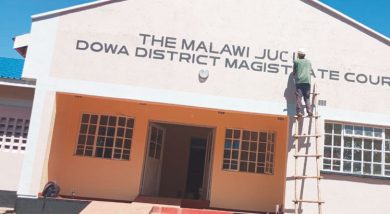Councillors will not improve services—report
Research into governance and local service delivery has found that the coming in of local councillors would not improve service delivery at local level because their authority has been taken over by parliamentarians.
The research, conducted by Overseas Development Institute, examined how political culture in Malawi would affect local governance and service delivery whose fragmented system is that power is centralised.
The study found that the effectiveness of councillors would be overshadowed by members of Parliament (MP) who have consolidated power since the last Local Government Elections were held in 2000.
The authors of the report, Tam O’Neil, Diana Cammack and Edge Kanyongolo, among others, warn that the presence of councillors would bring about political tensions and conflicts if councillors and MPs belong to different parties.
“Conflict over development funding and sites of projects is more likely now because MPs are even more ensconced in the local affairs as voting members of councils,” reads the report in part.
The research also found that the dual administration system where sector staff are employed by Capital Hill would mean that councillors would have little authority over the staff which will make it difficult for the new councillors to provide proper oversight.
Poor service provision in the absence of councillors such as severe shortages of staff in health centres and high classroom density is also highlighted in the report.
“Dysfunctional institutions at all levels of government directly affect local service delivery because they mean that goods and services such as medicine and water are not produced or do not get to where they need to be,” reads the report.
The research also looked into the role of donors in the decentralisation process with the report recommending that donors should ensure their programmes do not exacerbate poor governance and service delivery but develop an ‘arm’s length’ approach.
Department for International Development (DfID) funded the research, which was conducted in Lilongwe, Dedza, Rumphi and Blantyre.





